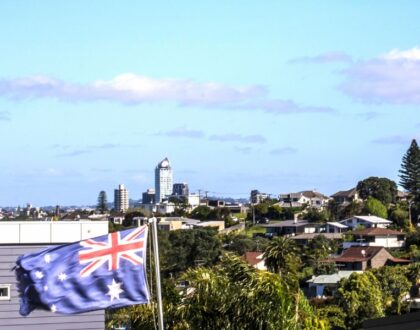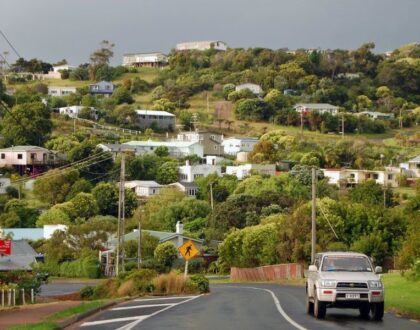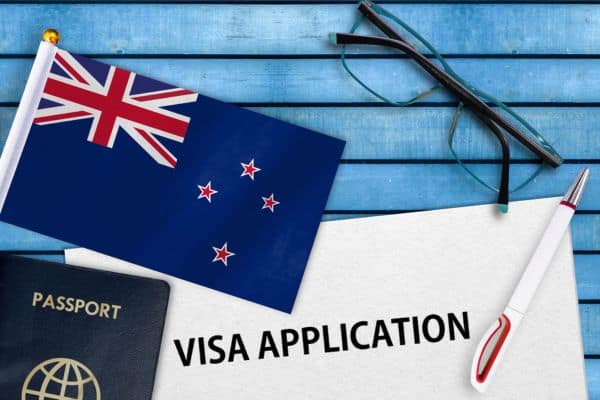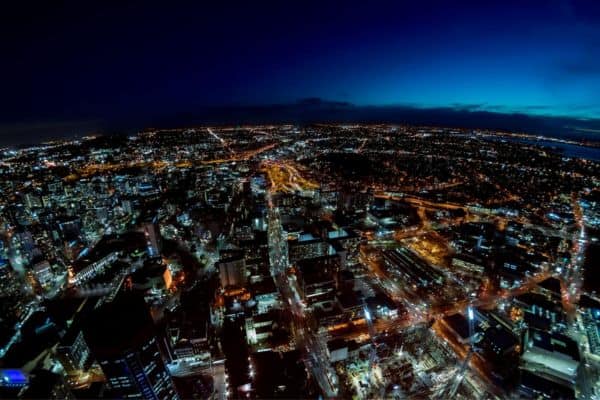The Top Tips for Moving to New Zealand with Family

by Hayley
Are you planning a move from the UK to New Zealand with your family? Our comprehensive guide is here to help you navigate every aspect of this exciting journey, from understanding visa requirements to finding the right schools and securing a new home. New Zealand offers a safe and welcoming environment, making it an ideal destination for families seeking a high quality of life.
With its excellent education system, free public healthcare, and various family-friendly visa options, New Zealand makes relocating with children, partners, and even extended family members a smooth process. Our guide breaks down everything you need to know to ensure a seamless transition to your new life down under.
Whether you’re drawn to the vibrant cities of Auckland, Wellington, or Christchurch or the stunning natural landscapes that encourage an active outdoor lifestyle, New Zealand has something for every family. Read on to discover how to make the most of your move and start planning your new adventure in this beautiful country. If you require a removal service to New Zealand, make sure to contact Simpsons International Removals.
1. Benefits of Moving to New Zealand with Family
New Zealand’s reputation as one of the world’s safest countries is a key benefit to consider when moving.
Ranked 2nd on the Global Peace Index, New Zealand boasts low crime rates and high levels of religious tolerance, making it an ideal place to raise a family.
The peace of mind that comes with living in such a secure environment is invaluable.
New Zealanders, or Kiwis as they are affectionately known, are renowned for their laid-back and welcoming nature. This encourages a healthy work-life balance, contributing significantly to family well-being.
The supportive community and genuine friendliness of the locals make it easier to integrate and feel at home quickly, especially for those experiencing New Zealand as visitors. Moreover, the favourable climate, with more sunshine than the UK, allows families to enjoy outdoor activities year-round.
Choosing to make New Zealand a permanent home comes with many benefits. Permanent residents have the right to vote and access to public education and free public healthcare. These benefits ensure they can fully participate in society and receive necessary services. These advantages, combined with the country’s natural beauty and outdoor lifestyle, make New Zealand an attractive destination for families looking to relocate.
2. Navigating the Visa Application Process
Navigating the visa application process is a crucial step when planning your move from the UK to New Zealand. For those looking to settle permanently, a Resident Visa is typically required.
The Skilled Migrant Category is one of the most popular pathways for UK citizens, allowing you to live and work in New Zealand if you have skills that are in demand.
This visa is points-based, taking into account factors such as your age, work experience, and qualifications. It’s a great option if you’re bringing specialised skills to the table and looking to make New Zealand your long-term home.
If you’re not ready to commit to permanent residency, there are other options available. Temporary Work Visas are ideal for those wanting to explore employment opportunities without the long-term commitment. These visas are usually tied to specific job offers and can be a stepping stone to permanent residency later on.
Additionally, for those under 35, New Zealand offers a Working Holiday Visa, which allows you to live and work in the country for up to three years. This visa is a fantastic opportunity for younger people looking to experience the New Zealand lifestyle while exploring potential job opportunities.
Each visa category has its own requirements and processes, so it’s essential to research thoroughly and ensure you’re applying for the one that best suits your needs and goals. With the right visa, your move to New Zealand can be a smooth and exciting transition.
3. Finding the Right Place to Live
Selecting an ideal place to live plays a vital role in your family’s happiness and well-being. Auckland, the largest city in New Zealand with over 1.5 million residents, offers a vibrant mix of urban living and natural beauty.
The North Shore, in particular, is popular with families due to its beautiful coastal bays and easy access to the city. As the most multicultural city in New Zealand, Auckland provides a diverse environment with numerous international events and cultural experiences.
Wellington, the capital city, is another excellent option. With a population of about 400,000, Wellington offers a rich arts and cultural scene, though it is known for its windiness. The well-organized and walkable central business district (CBD) makes it a pleasant place for families to live and work.
For those seeking a balance between urban life and affordability, Christchurch is a compelling choice. With a population of around 500,000, Christchurch offers a mix of urban and outdoor activities, including easy access to both mountains and beaches. It is also more affordable compared to Auckland and Wellington, making it a practical option for many families.
Dunedin, with its population of about 128,000, is known for its Scottish heritage and vibrant university atmosphere. While job opportunities may be more limited, Dunedin is considered the safest among New Zealand’s main cities, providing a family-friendly environment.
These are just a few of the many beautiful places to live in New Zealand.
4. Education System in New Zealand
From preschool to postgraduate levels, New Zealand’s excellent education system, including its school system, is celebrated for its outstanding quality.
The system is divided into three main levels: early childhood education, primary and secondary education, and further education. This structured approach ensures that children receive a well-rounded education, preparing them for future success.
Primary and secondary education in New Zealand covers ages 5 to 19, with schooling being compulsory from age 6 to 16. Here is an overview of the education system:
-
- Primary education, often referred to as primary school, starts at Year 1 and goes up to Year 8.
- Secondary education extends from Year 9 to Year 13.
- The National Certificate of Educational Achievement (NCEA) is the main secondary school qualification, assessed over the last three years of secondary education.
- NCEA ensures that students are well-prepared for higher education or the workforce.
There are three main types of schools in New Zealand: state, state-integrated, and private schools, each with different funding structures and curricular focuses. Enrolment in primary and secondary state schools is free for New Zealand citizens and permanent residents, making high-quality education accessible to all.
5. Healthcare Services
Supported by the New Zealand government through a universal public system financed by tax revenue, New Zealand offers a high-quality, reasonably priced, and accessible healthcare system.
This ensures that all residents have access to essential healthcare services without the burden of high costs.
Permanent residents can access government-subsidised healthcare, which includes free public healthcare for a wide range of services. Additionally, the Accident Compensation Corporation (ACC) covers medical and recovery costs for accidental injuries, providing free medical care for everyone in New Zealand in case of accidents.
While the public healthcare system is robust, many residents also opt for private health insurance to:
-
- Reduce wait times
- Access a broader range of specialists and medications
- Receive additional benefits like dental and vision care, which are not covered for adults under the public system.
6. Employment Opportunities
When moving to New Zealand from the UK, understanding the local employment landscape is key to a successful transition.
New Zealand boasts a dynamic job market, with certain industries experiencing a particularly high demand for skilled professionals. The healthcare sector, for example, consistently seeks doctors, nurses, and other medical practitioners to support its growing population.
Similarly, the Information Technology (IT) industry is thriving, with opportunities for software developers, cybersecurity experts, and IT managers. These industries not only offer competitive salaries but also provide a chance to contribute to sectors that are vital to New Zealand’s economy and well-being.
In addition to healthcare and IT, other sectors such as construction, engineering, and education are also in need of skilled workers. The construction boom across the country has led to a demand for architects, engineers, and tradespeople.
Meanwhile, New Zealand’s commitment to sustainable development has opened up opportunities in environmental sciences and renewable energy. For educators, the country’s strong emphasis on high-quality education means there is always a need for qualified teachers across various levels.
These high-demand sectors often have roles that are included on the Essential Skills in Demand (ESID) lists, which can make the visa application process smoother for UK citizens.
Employer sponsorship is another pathway to securing employment in New Zealand. Many companies in these high-demand industries are willing to sponsor skilled workers from abroad, helping them obtain the necessary work visas. This not only provides job security for those moving from the UK but also eases the transition into the New Zealand workforce.
Securing a job offer from a New Zealand employer can significantly strengthen your visa application, making it a worthwhile approach to explore if you have the skills that are currently in demand. Whether through employer sponsorship or by directly applying for jobs in sectors with skills shortages, the employment opportunities in New Zealand are robust and diverse, offering a promising future for those ready to make the move.
7. Cost of Living
A thorough understanding of the cost of living is a vital component for planning your relocation to New Zealand.
While the cost of living can be slightly higher than in the UK, it varies significantly depending on the city and lifestyle choices.
Overall, the cost of living in New Zealand is approximately 6% less expensive compared to the UK.
Auckland and Wellington are the most expensive cities to live in, with higher property prices and rents. For example, a 1-bedroom rental property in New Zealand averages $1,851.51 (£868) per month, while a 3-bedroom rental property averages $3,059.29 (£1434) per month. However, cities like Dunedin offer a lower cost of living, making them attractive options for families.
Utility bills for one person in New Zealand average $105.26 (£49) per month, and a public transport monthly pass costs around $153.89 (£71.76) . Despite these costs, the average wage in New Zealand is around $97,300 (£45,633) per year, nearly double the average UK salary, providing a better standard of living for many families.
8. Outdoor Activities and Lifestyle
Famed for its stunning natural beauty, New Zealand also boasts a wealth of outdoor activities. The country’s diverse landscapes include:
-
- Dense rainforests
- Snow-capped mountains
- Icy glaciers
- Rugged coastlines
These unspoiled environments provide endless opportunities for exploration and adventure.
Popular hiking trails, such as the Milford and Kepler Tracks, offer scenic walks through some of the most breathtaking landscapes in the world. The Fiordland National Park, home to the iconic Milford Sound, is known for its towering cliffs and cascading waterfalls, making it a must-visit destination.
Other notable locations include Rotorua, which is famous for its geothermal activity, and the Bay of Islands, which offers wildlife cruises with chances to see dolphins, whales, and native penguins. These natural wonders contribute to a lifestyle that promotes physical activity and a deep connection with nature.
9. Settling In and Building a Community
More than just finding a place to live, settling into a new country entails building a community and forging connections.
Engaging with your local community is crucial for creating a support network and making new friends. Attending local events, joining clubs, and participating in community activities are excellent ways to integrate and feel at home.
Taking the time to explore your new surroundings can also help you feel more connected to your new home. Visiting local attractions, parks, and cultural sites allows you to appreciate the unique aspects of New Zealand and understand its culture better.
Learning about New Zealand’s customs and traditions is another important step in the integration process. Showing respect for local traditions and understanding cultural norms will help you build strong relationships and feel more at ease in your new environment.
10. Helping children adapt to life in New Zealand
Moving to New Zealand with your family offers an exciting opportunity for your children to thrive in a new environment.
One of the many advantages is that English is the primary language, which makes it easier for children from the UK to adapt quickly to their new surroundings. New Zealand’s culture is welcoming and inclusive, with a strong emphasis on community and outdoor activities, which naturally helps children feel at home.
Schools in New Zealand are known for their supportive and nurturing environments, encouraging children to explore, learn, and make new friends easily. The education system is designed to promote a balanced lifestyle, blending academic achievement with a focus on well-being and personal development.
New Zealand is a family-friendly country where children can enjoy a safe and active lifestyle. From playing sports in the local park to exploring the stunning natural landscapes, there’s always something for your children to do and discover. The close-knit communities often organize events and activities, making it easy for your kids to meet peers and build lasting friendships.
With plenty of opportunities for outdoor adventures and a strong sense of community, New Zealand offers a positive and enriching environment for children to adapt to and grow in, making the transition to life in this beautiful country a smooth and enjoyable experience for the whole family.
Relocating to New Zealand from UK?
To make your move to New Zealand seamless and stress-free, Simpsons International Removals provides a diverse range of services. Their professional packing service ensures that all your belongings are carefully wrapped and protected during transit. This attention to detail is crucial for ensuring that your items arrive in perfect condition.
The company provides both air and sea freight services, giving you flexibility depending on your needs and budget. For smaller moves, they offer an express air freight option, while larger moves can benefit from full-load or part-load sea freight services. This variety of options ensures that you can choose the best solution for your specific situation.
Additionally, Simpsons International Removals has a dedicated team to handle all the documentation and customs clearance required for moving to New Zealand including container shipping. They also offer storage solutions for those who might need temporary storage during the transition. This comprehensive service ensures that every aspect of your move is taken care of professionally.
Recommended Posts

Top Picks: Best Places to Live in New Zealand for Expats in 2025
Monday, 13th January 2025

Top Things to Do in Auckland When You Live There
Thursday, 17th October 2024

Top Tips for Driving in New Zealand When you come from the UK
Thursday, 1st August 2024












